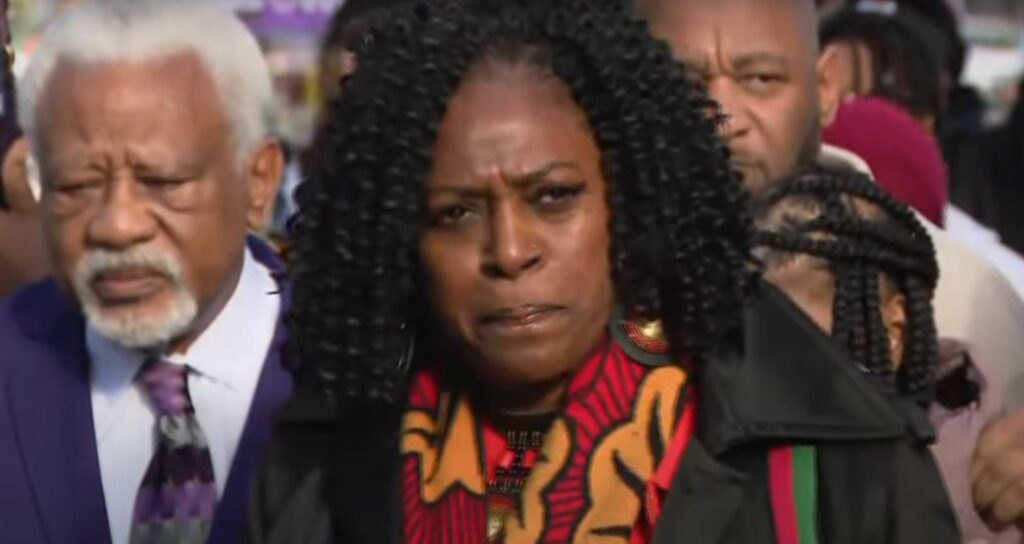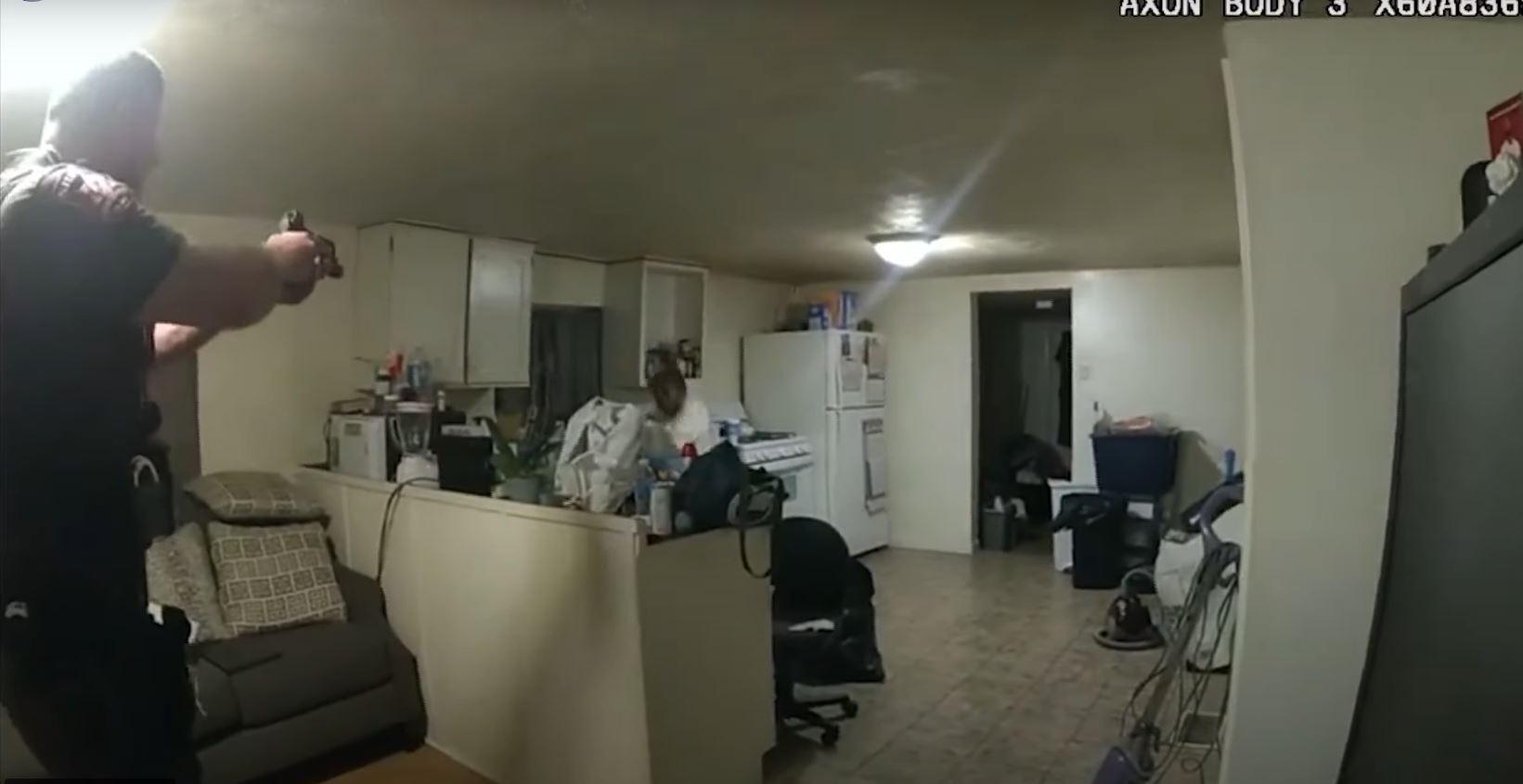Source: Google News & Reader Reviews
SPRINGFIELD, Ill. — October 29, 2025 — Former Sangamon County sheriff’s deputy Sean Grayson was found guilty of second-degree murder Wednesday in the shooting death of Sonya Massey, a 36-year-old Black woman who called 911 for help inside her own home last year.
Help Us To Serve You Better.
Your feedback helps support local journalism.
The verdict, delivered by a Peoria County jury after roughly seven hours of deliberation, capped a closely watched trial that became a flashpoint in national debates about police accountability, use of force, and mental-health response protocols.
Grayson, 32, was initially charged with three counts of first-degree murder, aggravated battery with a firearm, and official misconduct. Jurors opted for the lesser homicide count, concluding that while his use of deadly force was unjustified, it did not meet the threshold of premeditated intent.
He faces a potential sentence of up to 20 years in prison, with sentencing scheduled for January 29, 2026. Illinois law allows probation in second-degree cases, though prosecutors said they will seek prison time.
A 911 Call for Help Turns Deadly
The case stems from events on July 6, 2024, when Massey dialed 911 just after midnight to report a suspected prowler outside her home in Springfield. Two deputies from the Sangamon County Sheriff’s Office responded, including Grayson, who had been on the force less than a year.
Body-camera video, released weeks after the shooting by the Illinois State Police, shows deputies entering the home after finding no intruder. Massey, who appeared calm but anxious, walked into her kitchen and picked up a pot of boiling water from the stove.
Grayson drew his service weapon and shouted for her to “drop it.” Seconds later, Massey uttered a religious phrase — “I rebuke you in the name of Jesus” — and the deputy fired a single shot that struck her in the head. She died at the scene.
Investigators later confirmed that Grayson’s own body-camera was not activated until after the gunfire. The fatal encounter was instead captured by the second deputy’s camera.
The Sangamon County Sheriff’s Office fired Grayson within days, and a grand jury indicted him less than two weeks later.
Trial Moved Amid Intense Public Scrutiny
Due to extensive pretrial publicity and community protests in Springfield, a judge granted a defense motion to move the trial about 85 miles north to Peoria County.
During the two-week proceeding, prosecutors argued that Grayson’s decision to fire was “reckless, unjustified, and born of anger rather than fear.” They emphasized that Massey never raised the pot or advanced toward the deputies.
Assistant State’s Attorney Erin Kelley told jurors that “the threat existed only in the defendant’s mind.”
Defense attorneys maintained that Grayson acted in split-second self-defense, fearing he would be scalded by boiling water. They described Massey’s words and gestures as erratic and unpredictable.
The defense also highlighted Massey’s previous contact with police just hours earlier, when her mother had called 911 expressing concern for her daughter’s mental health.
Jurors heard testimony from forensic experts, mental-health specialists, and law-enforcement trainers on the proper use of force and de-escalation standards.
Background of the Officer
Grayson’s personnel history came under renewed scrutiny during the trial. Records and investigative reports revealed a pattern of prior misconduct at several previous law-enforcement agencies.
According to documents obtained by the Invisible Institute and corroborated in court filings, Grayson had been disciplined for “bullying behavior” and “abuse of authority” and was discharged from the U.S. Army for “serious misconduct.”
Prosecutors argued that Sangamon County failed to properly vet his record before hiring him, raising questions about systemic oversight in rural departments.
Public Reaction and Broader Implications

The verdict drew mixed reactions outside the courthouse. Supporters of the Massey family cheered the conviction but expressed disappointment that jurors stopped short of a first-degree murder finding.
“I’m grateful he’s finally being held accountable,” said James Massey, the victim’s father. “But my daughter called for help, and they took her life. That’s not second-degree — that’s murder.”
Civil-rights advocates echoed the sentiment, calling the outcome a modest step toward accountability while demanding broader reforms.
“This verdict sends a message that the badge doesn’t excuse recklessness,” said Shavonne Brown, a Springfield-based organizer. “But until policies change and screening improves, tragedies like this will keep happening.”
Earlier this year, Sangamon County approved a $10 million settlement with Massey’s family, one of the largest payouts in Illinois history for an officer-involved shooting. The settlement included a public acknowledgment of wrongdoing by county officials and a pledge to overhaul hiring and training procedures.
Aftermath and Next Steps
Grayson remains in custody pending sentencing. Prosecutors say they will argue for the maximum term under Illinois guidelines, citing “a total disregard for human life.”
Meanwhile, advocacy groups have pressed for state-level reviews of police certification standards, noting that Grayson’s prior disciplinary record should have barred him from serving as a deputy.
The Illinois Attorney General’s Office has also opened a separate investigation into compliance with the SAFE-T Act, which mandates that officers activate body cameras before and during all citizen encounters.
For the Massey family, the road to justice has been long and painful.
“She trusted that calling 911 would bring help,” said family attorney DeShawn Carter outside the courthouse. “Instead, it brought the person who killed her. This verdict doesn’t end the pain, but it begins the truth.”
The case has reignited national debate over how law enforcement responds to mental-health calls and the training given to deputies in smaller counties. Experts say it underscores the need for more crisis-intervention units and civilian mental-health responders.
As sentencing approaches, Illinois prosecutors hope the decision sets a precedent for holding officers criminally accountable in rare but devastating misuse-of-force cases.
“Sonya Massey deserved protection,” prosecutor Kelley told reporters after court adjourned. “Tonight, a jury finally said so.”
Jake Monroe covers crime and courts for Las Vegas Newspaper. Reach him at [email protected].
Source: Google News & Reader Reviews















Leave a Reply